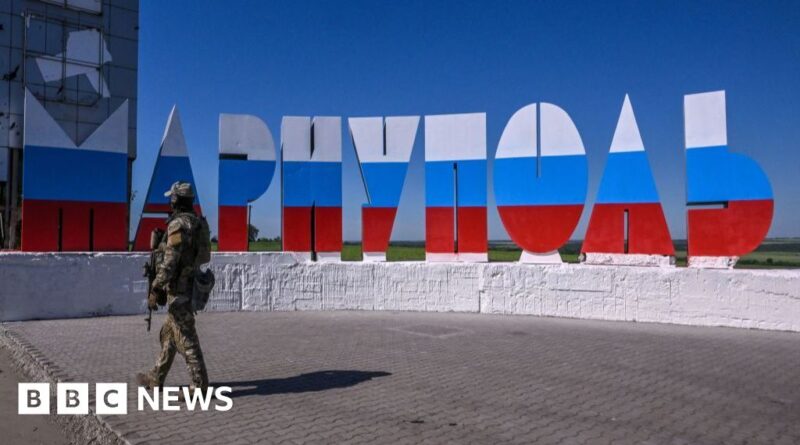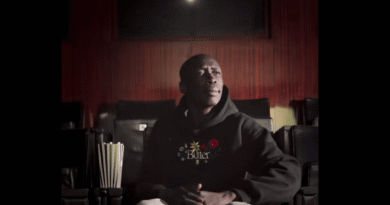Ukraine war: Mariupol residents deny Russian stories about the city
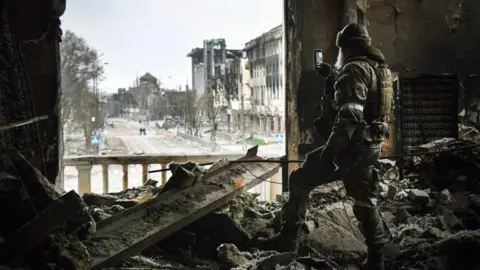 Getty Images
Getty Images“What they’re showing on Russian TV are fairy tales for fools. Most of Mariupol still lies in ruins,” says John, a Ukrainian living in Russian-occupied Mariupol. We’ve changed his name as he fears reprisal from Russian authorities.
“They are repairing the facades of the buildings on the main streets, where they bring cameras to shoot. But around the corner, there is rubble and emptiness. Many people still live in half-destroyed apartments with their walls barely standing,” he says.
It’s been just over three years since Mariupol was taken by Russian forces after a brutal siege and indiscriminate bombardment – a key moment in the early months of Russia’s full-scale invasion of Ukraine.
Thousands were killed, and the UN estimated 90% of residential buildings were damaged or destroyed.
In recent months, videos and reels from several pro-Russia influencers have been painting a picture of a glossy city where damaged structures have been repaired and where life has gone back to normal.
But the BBC has spoken to more than half a dozen people – some still living in Mariupol, others who escaped after spending time under occupation – to piece together a real picture of what life is like in the city.
“There are a lot of lies floating around,” says 66-year-old Olha Onyshko who escaped from Mariupol late last year and now lives in Ukraine’s Ternopil.
“I wouldn’t say they [Russian authorities] have repaired a lot of things. There’s a central square – only the buildings there have been reconstructed. And there are also empty spaces where buildings stood. They cleared the debris, but they didn’t even separate out the dead bodies, they were just loaded on to trucks with the rubble and carried out of the city,” she adds.
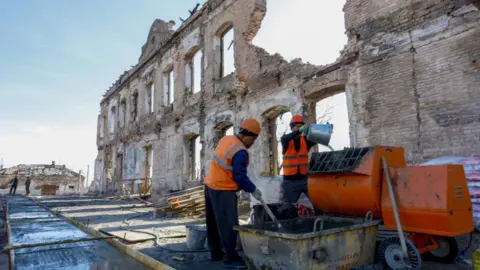 Getty Images
Getty ImagesMariupol is also facing severe water shortages.
“Water flows for a day or two, then it doesn’t come for three days. We keep buckets and cans of water at home. The colour of the water is so yellow that even after boiling it, it’s scary to drink it,” says James, another Mariupol resident whose name has been changed.
Some have even said the water looks like “coca cola”.
Serhii Orlov, who calls himself Mariupol’s deputy mayor in exile, says the Siverskyi Donets–Donbas Canal which supplied water to the city was damaged during the fighting.
“Only one reservoir was left supplying water to Mariupol. For the current population, that would’ve lasted for about a year and a half. Since occupation has lasted longer than that, it means there is no drinking water at all. The water people are using doesn’t even meet the minimum drinking water standard,” says Serhii.
There are frequent power cuts, food is expensive, and medicines are scarce, residents tell us.
“Basic medicines are not available. Diabetics struggle to get insulin on time, and it is crazy expensive,” says James.
The BBC has reached out to Mariupol’s Russian administration for a response to the allegations about shortages and whether they had found an alternative source for water. We have not got a response so far.
Despite the hardships the most difficult part of living in the city, residents say, is watching what Ukrainian children are being taught at school.
Andrii Kozhushyna studied at a university in Mariupol for a year after it was occupied. Now he’s escaped to Dnipro.
“They are teaching children false information and propaganda. For example, school textbooks state that Donetsk, Luhansk, Kharkiv, Zaporizhzhia, Kherson, Odesa, Crimea and even Dnipropetrovsk regions are all already part of Russia,” says Andrii.
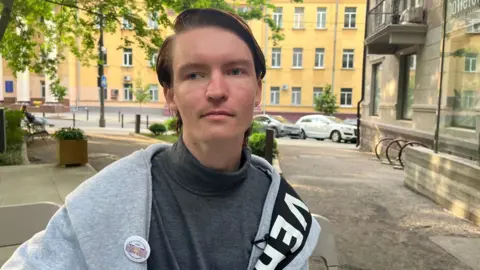
He also described special lessons called “Conversations about Important Things” in which students are taught about how Russia liberated the Russian-speaking population of these regions from Nazis in 2022.
“Teachers who refuse to take these lessons are intimidated or fired. It’s like they are reprogramming the minds of our children,” says John, a Mariupol resident.
During World War Two Victory Day celebrations in May, images from Mariupol’s central square showed children and adults dressed up in military costumes participating in parades and performances – Soviet-era traditions that Ukraine had increasingly shunned are now being imposed in occupied territories. Mariupol was bathed in the colours of the Russian flag – red, blue and white.
But some Ukrainians are waging a secret resistance against Russia, and in the dead of the night, they spray paint Ukrainian blue and yellow colours on walls, and also paste leaflets with messages like “Liberate Mariupol” and “Mariupol is Ukraine”.
James and John are both members of resistance groups, as was Andrii when he lived in the city.
“The messages are meant as moral support for our people, to let them know that the resistance is alive,” says James.
Their main objective is collecting intelligence for the Ukrainian military.
“I document information about Russian military movements. I analyse where they are transporting weapons, how many soldiers are entering and leaving the city, and what equipment is being repaired in our industrial areas. I take photos secretly, and keep them hidden until I can transmit them to Ukrainian intelligence through secure channels,” says James.
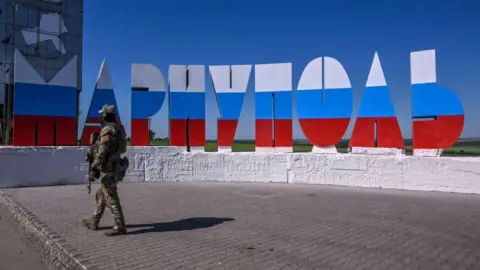 Getty Images
Getty ImagesOccasionally, the resistance groups also try to sabotage civil or military operations. On at least two occasions, the railway line into Mariupol was disrupted because the signalling box was set on fire by activists.
It’s risky work. Andrii said he was forced to leave when he realised that he had been exposed.
“Perhaps a neighbour snitched on me. But once when I was at a store buying bread, I saw a soldier showing my photo to the cashier asking if they knew who the person was,” he said.
He left immediately, slipping past Mariupol’s checkposts and then travelling through numerous cities in Russia, and through Belarus, before entering Ukraine from the north.
For those still in the city, each day is a challenge.
“Every day you delete your messages because your phone can be checked at checkpoints. You’re afraid to call your friends in Ukraine in case your phone is being tapped,” says James.
“A person from a neighbouring house was arrested right off the street because someone reported that he was allegedly passing information to the Ukrainian military. Your life is like a movie – a constant tension, fear, distrust,” he adds.
As talks continue between Ukraine and Russia, there have been suggestions from within and outside Ukraine that it would need to concede land in exchange for a peace deal.
“Giving away territory for a ‘deal with Russia’ will be a betrayal. Dozens risk their lives every day to pass information to Ukraine, not so that some diplomat in a suit will sign a paper that will ‘hand us over’,” says John.
“We don’t want ‘peace at any cost’. We want liberation.”
Additional Reporting by Imogen Anderson, Anastasiia Levchenko, Volodymyr Lozhko and Sanjay Gangly

